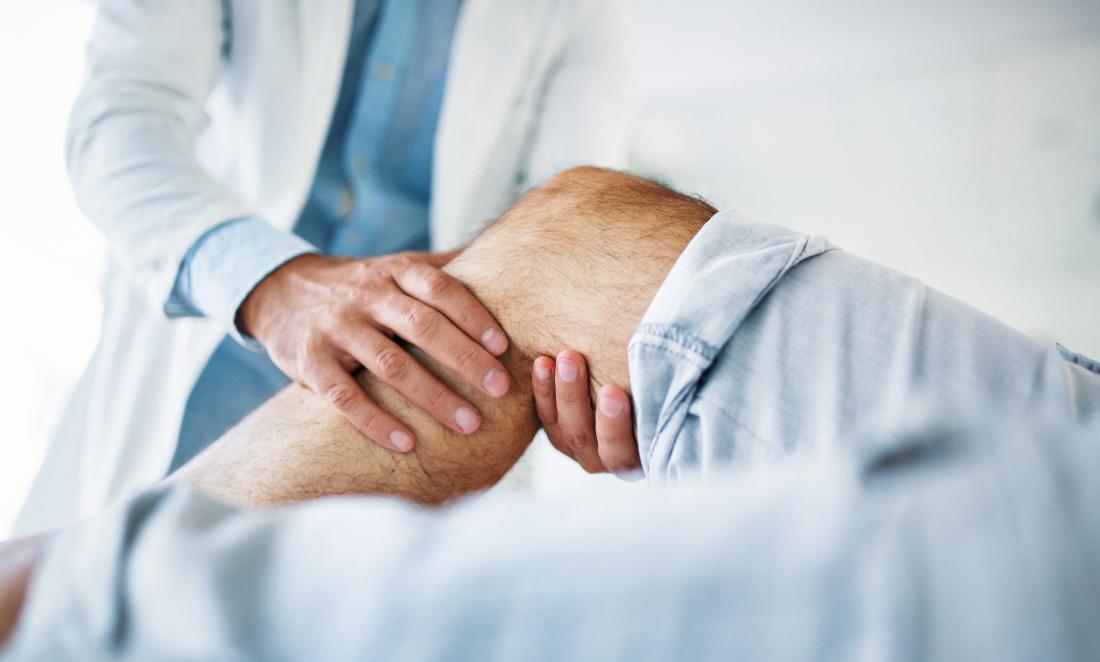|
An original is always preferred over a duplicate, fresh over frozen and experienced candidates over freshers. Likewise, a healthy, unaffected cartilage is always preferred over mended ones, however good they might function.
Body Framework Human body comprises of cells, tissues, organs and different systems such as the skeletal, digestive, respiratory, circulatory, reproductive and nervous system. Any structure needs a framework to exist upon. Similar to how a building has an internal framework of rods, bricks and cements, the human skeletal system forms the internal framework of the body constituting of bones and cartilages. Bones & Cartilages Bones support and protect the various organs of the body, provide structure to the human body and aid in movement. Cartilage is an elastic tissue that covers and protects the end of the long bones. Apart from bones and cartilages, we have the muscles and these three form the main structural components of our body. While bones are too rigid and muscles are too flexible, cartilages are a mix of both qualities-they are found in places that need structure and support along with a little flexibility. Our joints, ears, nose and vertebrae in our spinal column find cartilages to be immensely useful in this regard. Joints, as the name suggests, are the parts of your body where the bones meet and allow them to move. The major joints of our body include the shoulders, hips, elbows and knees. These are also the areas that often people complain about pain and discomfort. Cartilages are also part of the long bones that meet in the knee joint and they are known as articular cartilages. These help the joints to move smoothly. Any damage to the articular cartilage which is caused mainly due to playing sports such as football, rugby and skiing will not heal on its own. Knee osteoarthritis is the most common form of arthritis that affects numerous people worldwide. If this problem is left untreated, the cartilages wear away in due course of time. Some critical and severe symptoms that indicate damaged cartilages include joint pain, inflammation, stiffness, clicking or grinding sensation and limited ability to move the affected limbs. What Does this Study Say? Falling is torturous but it is better to wish for broken legs than damaged cartilages. A new study tells that unlike bones, cartilages will never regrow or heal. Every athlete or exercise freak would surely vouch for this! A damaged knee cartilage is the last thing that one would desire and one that cannot be replaced mostly. To verify this, researchers made use of a technique that determined age of molecules depending on levels of the carbon-14 isotope. The quantity of these isotopes rose rapidly around the 1950s and decreased rapidly after a 1963 treaty banning them. The quantity of the isotope can determine the age of the molecule. If the molecules are replaced often then the quantity of the isotope should be as close as the current levels in the atmosphere. But, if the molecules were stable then the isotope levels should match atmospheric levels from when it was made. The team measured carbon-14 levels from one donated body and 22 other patients born before the year 2000 who underwent knee replacement surgery. They all opted for knee replacement either because they suffered from osteoarthritis or because they had knee tumors. The team analyzed cartilages from the middle (this is subjected to maximum strain) of the knee joint and from the edge (this carries a lighter load) of the joint. The analysis showed that all participants did not produce new cartilages once they grew into adults and carbon-14 isotope quantities were maximum seen in patients born in the 1950s. All these prove that there is no means to recover damaged cartilages and the only method to save them is to come up with successful interventions to prevent cartilage damage or deterioration. We need to take care of our joints while we are still young. Any efforts to repair damaged cartilages becomes futile thereafter. Staying on a healthy weight, eating nutritious foods and leading an active lifestyle can promote bone health and protect cartilages. Get in touch with a registered dietitian nutritionist at www.firsteatright.com to start living well in terms of health, nutrition and fitness to save yourself and your cartilages. Comments are closed.
|
AVOID FRAUD. EAT SMART.+91 7846 800 800
AuthorDietitian & Nutritionist Dr. Nafeesa Imteyaz. Archives
July 2024
Categories
All
Dr. Nafeesa's Blog @blogspot |
- Home
- Written Testimonials
- Consult
- Clinics
- Blogs
-
Diet & Nutrition
- Diabetes Reversal
- IVF IUI not needed for PCOS PCOD Infertility
-
Medical Nutrition
>
-
Disease & Conditions
>
- Infertility | PCOS
- Diabetes Mellitus
- Cholesterol
- Hypothyroid
- Kidney Problems
- Hypertension
- Cardiovascular Diseases
- Liver Diseases
- Gastro intestinal disorder
- Cancer
- Metabolic Disorders
- Orthopedic Disorders
- Eating Disorders
- Dietary Recall
- Weight Record Filled By Clients
- Online Payment Transaction Details
- Online Clients Weight Check Form
- Our Program Package Service Charges
- Weight Record 2017 Clients
- Measurements sent by Clients
- Terms & Conditions Of Payment
- Thanks. Your Form is Submitted
- Video Testimonials
- Lifestyle & Wellness
- Lifestyle & Wellness Blog
- Allergy & Intolerance
- Weight Loss / Gain
- Weight Loss / Slimming Blog
-
Disease & Conditions
>
- Life Cycle Nutrition >
- Sports Nutrition >
- Integrity in Nutrition
- Knowledge Centre
© COPYRIGHT 2022. ALL RIGHTS RESERVED. FRST HEALTHCARE PVT LTD.
Dr. Nafeesa Imteyaz of First Eat Right clinic, is the Best Dietitian Nutritionist in Bangalore. Best Dietitian Nutritionist in Pune. Best Dietitian Nutritionist in Hyderabad. Best Dietitian Nutritionist in Chennai. Best Dietitian Nutritionist in Mumbai. Best Dietitian Nutritionist in Delhi. Best Dietitian Nutritionist in Kolkata.


